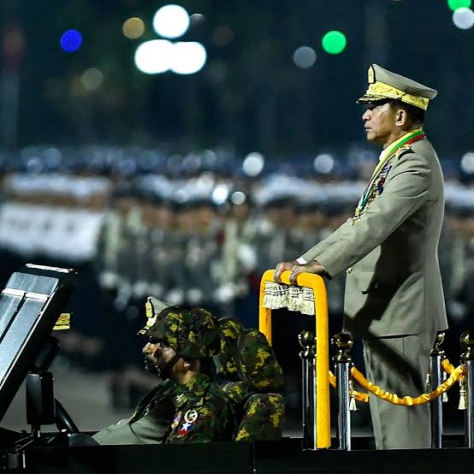
Thailand Emerges as Top Banking Destination for Myanmar Junta Amid Escalating Military Attacks
By Fiona Nanna, ForeMedia News
6 minutes read. Updated 11:00PM GMT Thurs, 27, 2024
A new United Nations-backed report has revealed that international banks are significantly enabling the Myanmar military junta to continue its deadly crackdown on its people. According to the report, Thai banks have become a primary conduit for the junta’s acquisition of weapons and military supplies, crucially supporting a three-year civil war that has claimed over 5,000 civilian lives.
The report, released on Wednesday by UN Special Rapporteur on Human Rights Tom Andrews, highlights how the Myanmar military, since its February 2021 coup, has relied heavily on Thai banking institutions to fund its operations against ethnic armed groups and resistance forces. As the junta faces mounting territorial losses and dwindling troop numbers, it has intensified airstrikes and attacks on civilians, exacerbating an already dire humanitarian crisis.
In response to the junta’s brutal campaign, Western nations have imposed comprehensive sanctions on military leaders, state-owned companies, banks, and suppliers of jet fuel. However, the junta continues to procure essential resources, with the report detailing that 16 banks across seven countries facilitated transactions for the military’s procurement of $253 million worth of weapons and supplies from April 2023 to March 2024.
The Role of Thai Banks
The report, titled “Banking on the Death Trade: How Banks and Governments Enable the Military Junta in Myanmar,” underscores the critical role of Thai banks in supporting the junta’s activities. Notably, the Siam Commercial Bank has been highlighted for facilitating over $100 million in transactions related to the military by 2023, a significant increase from just over $5 million in 2022.
This shift comes as Singapore, previously a major source of military supplies for Myanmar, has seen a dramatic reduction in related transactions following government investigations. Singapore-based entities, which once accounted for more than 70% of the junta’s purchases, now contribute less than 20%.
International Response and Implications
UN Special Rapporteur Tom Andrews emphasized the importance of international financial institutions adhering to human rights obligations and not enabling the junta’s operations. He called for the sanctioning of networks supplying jet fuel to the junta and targeting the Myanma Economic Bank, which could significantly impact the military’s capabilities and help alleviate the humanitarian crisis.
Thailand’s Ministry of Foreign Affairs has acknowledged the report and is investigating the claims. A ministry spokesperson stated that while many countries have been implicated, it is crucial to establish the facts before taking any further steps, noting that Thai banking institutions adhere to standard banking protocols.
Global Call to Action
The report’s findings have spurred calls for a coordinated international effort to close the gaps in sanctions regimes and prevent financial institutions from facilitating the junta’s deadly transactions. As the situation in Myanmar continues to deteriorate, the role of banks and financial entities in supporting the junta’s operations remains under intense scrutiny.
For more detailed information on the ongoing crisis and the role of international banks, read the full report here.
Related Articles:

